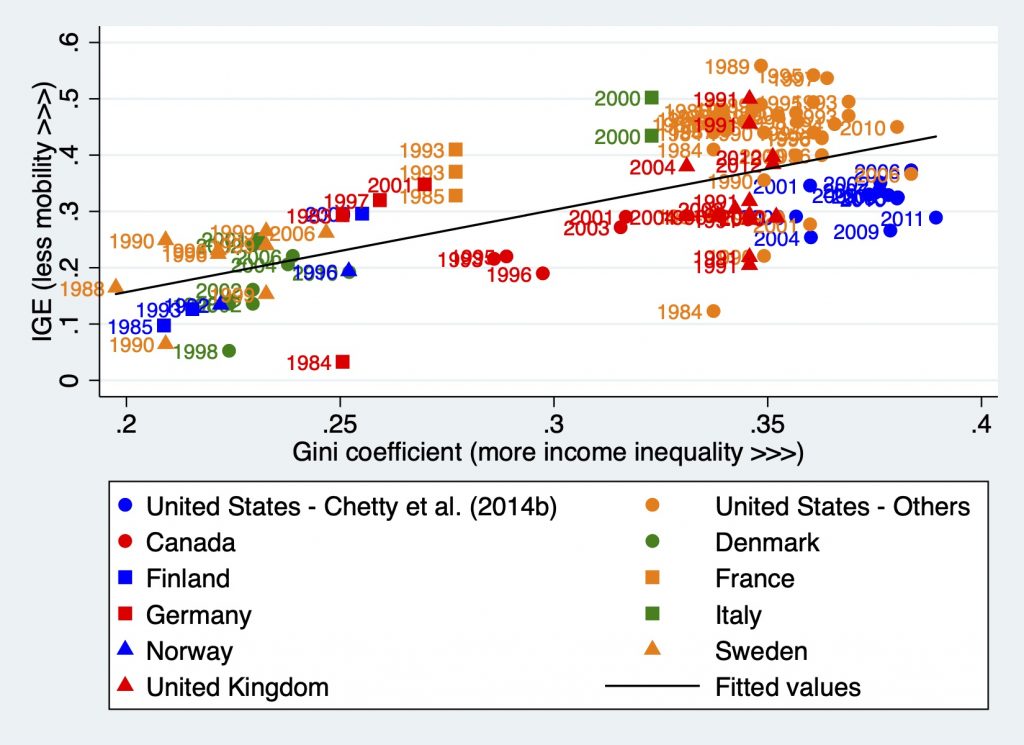Sociology Colloquium, 10/21/2020
Association of Income Inequality and Migration with Intergenerational Mobility
Dr. Ernesto Amaral, Dr. Arthur Sakamoto, Shih-Keng Yen, Texas A&M University
Dr. Sharron Wang-Goodman, Delaware State University
Link to presentation
A Meta-Analysis of the Association Between Income Inequality and Intergenerational Mobility
We provide an overview of associations between income inequality and intergenerational mobility in the United States, Canada, and eight European countries. We analyze whether this correlation is observed across and within countries over time. We investigate Great Gatsby curves and perform meta-regression analyses based upon several papers on this topic. Results suggest that countries with high levels of inequality tend to have lower levels of mobility. Intergenerational income elasticities have stronger associations with the Gini coefficient, compared to associations with the top one percent income share. Once models are controlled for methodological variables, country indicators, and paper indicators, correlations of mobility with the Gini coefficient lose significance, but not with the top one percent income share. This result is an indication that recent increases in inequality at the top of the distribution might be negatively affecting mobility on a greater magnitude, compared to variations across the income distribution (link to paper).
What About Immigration? The Closed-Population Assumption in Research on Intergenerational Income Mobility
Research on intergenerational income mobility is highly informative and increasingly popular. A neglected aspect of these studies, however, is their implicit target population. Research on income mobility studies are typically biased towards the representation of third-and-higher generation persons. We refer to this practice as the closed-population assumption. First-generation, second-generation, and undocumented immigrants are less likely to be included because adequate data on income for their parental generation is more likely to be missing. Given significant international migration, ignoring the foreign stock is potentially inaccurate when making generalizations about entire societies. We discuss analytical issues associated with the closed-population assumption, and provide some exploratory findings which suggest significant interrelationships between immigration and intergenerational income mobility.
October 21, 2020
Wednesday, 12–1:30pm
Zoom session
Meeting ID: 963 3738 5938
Passcode: 577241
If you cannot join with video, you can connect to the Zoom session via phone: 1–346–248–7799
